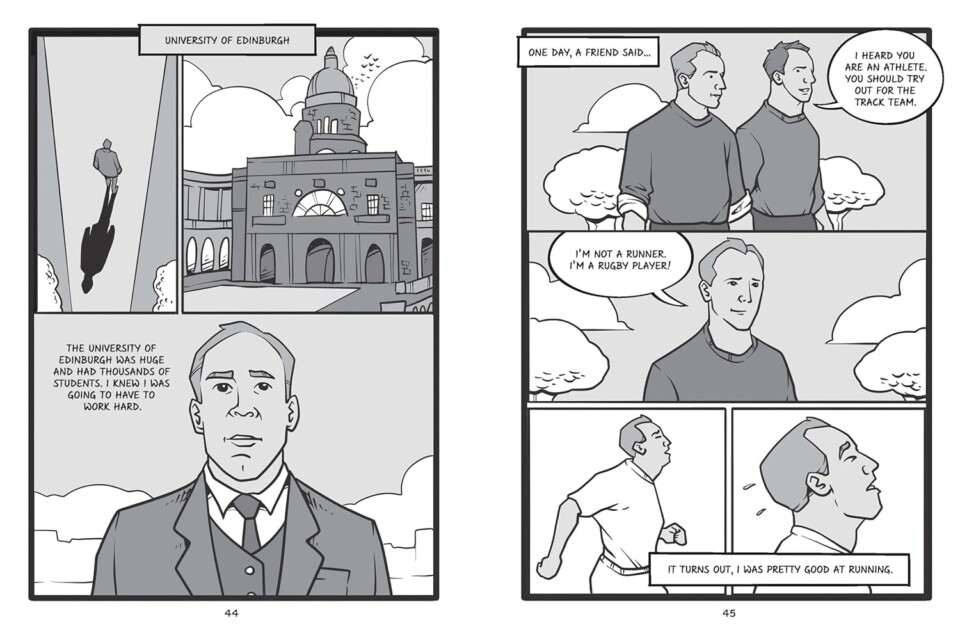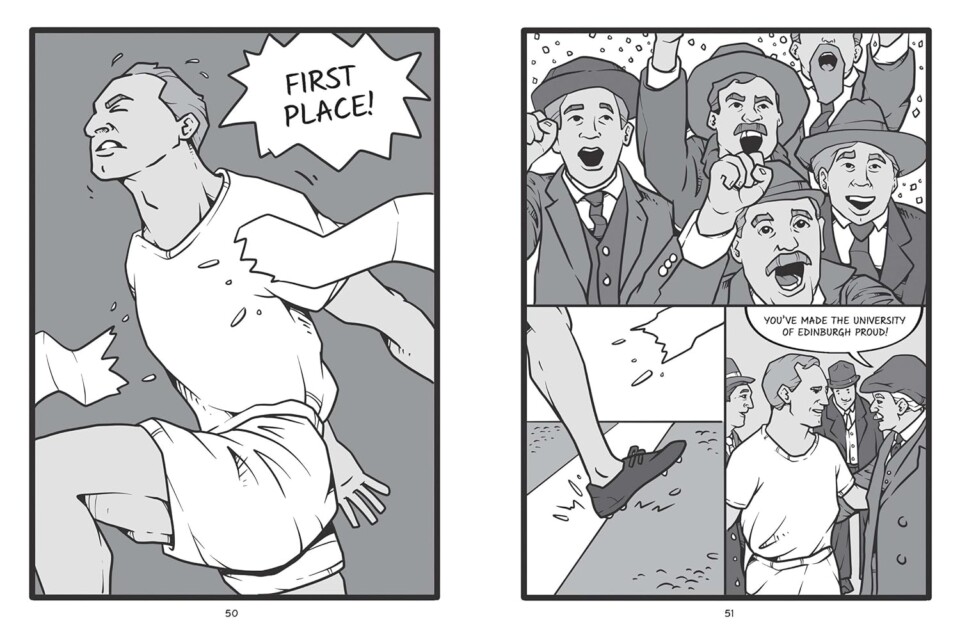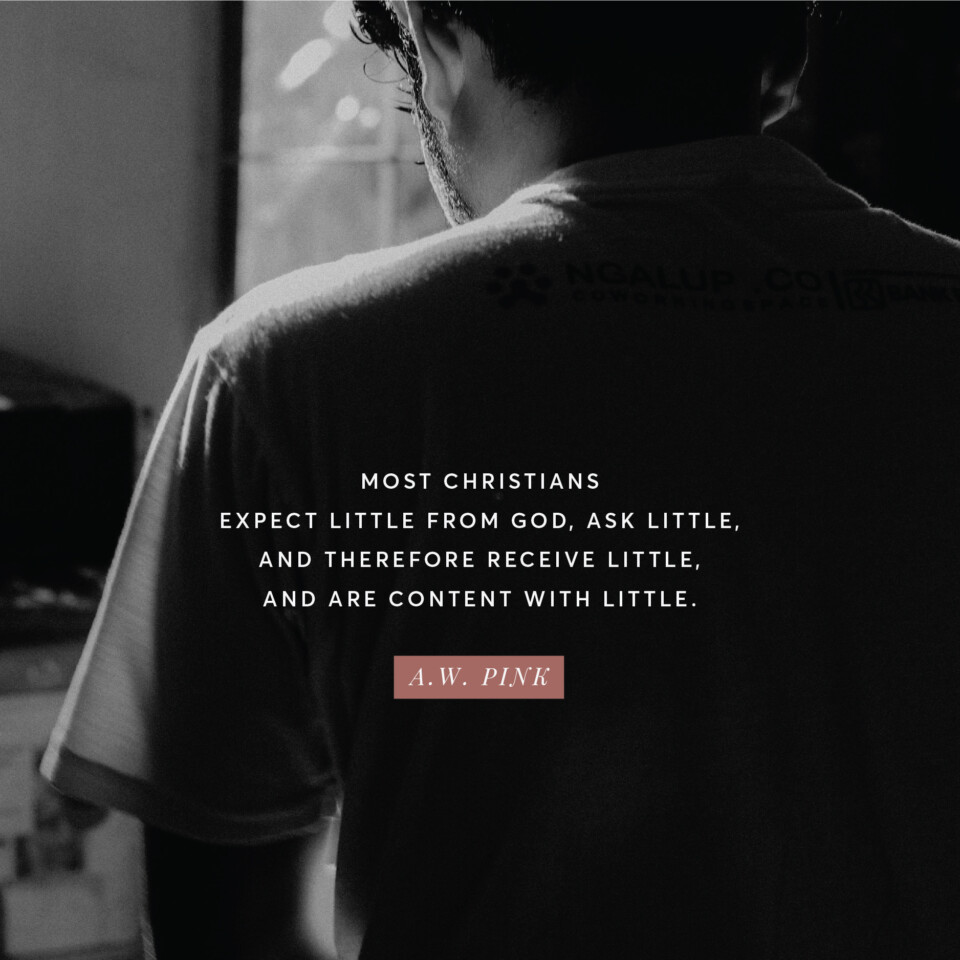 On April 28, Canadians elected the Liberal Party of Canada to a fourth consecutive term. This is a rare feat for a political party in Canada and in this case, one of special significance, for just months ago, the Liberals seemed destined for near-complete destruction. The cost of living was spiking, the quality of life was falling, and through it all Prime Minister Justin Trudeau had become historically unpopular.]]>
On April 28, Canadians elected the Liberal Party of Canada to a fourth consecutive term. This is a rare feat for a political party in Canada and in this case, one of special significance, for just months ago, the Liberals seemed destined for near-complete destruction. The cost of living was spiking, the quality of life was falling, and through it all Prime Minister Justin Trudeau had become historically unpopular.]]>
On April 28, Canadians elected the Liberal Party of Canada to a fourth consecutive term. This is a rare feat for a political party in Canada and in this case, one of special significance, for just months ago, the Liberals seemed destined for near-complete destruction. The cost of living was spiking, the quality of life was falling, and through it all Prime Minister Justin Trudeau had become historically unpopular. His party had also become historically unpopular and was able to press on only by being propped up by the New Democratic Party and then proroguing Parliament. At that time, polls showed the Conservative Party under Pierre Poilievre would triumph to a degree never before seen in Canadian history.
But then Donald Trump got involved and did so in a couple of different ways.1 First, following a fateful meeting with Justin Trudeau, he began to refer to Canada as the 51st state and its Prime Minister as a mere governor. He made it clear that he believed Canada should revoke its sovereignty and become part of the United States. Second, he began to treat Canada as more of an enemy than an ally, putting heavy tariffs in place and speaking of how Canada has been taking advantage of the United States by stealing her jobs and maintaining unfair trade surpluses. Almost instantly, the political scene in Canada was utterly transformed.
Justin Trudeau eventually resigned and the Liberals chose Mark Carney as his successor. Carney, a former governor of both the Bank of Canada and the Bank of England, was almost entirely unknown to Canadians before putting his hat in the ring and being appointed Prime Minister. In his short initial tenure in office, he quickly passed some of the measures promised by Pierre Poilievre, such as revoking the hated carbon tax, while adopting several components of the Conservative platform as his own. This took the wind out of the Conservative sails and essentially narrowed the election to a referendum on which leader could best stand up to Donald Trump and save the Canadian economy. Many believed it came down to the choice between a career politician with no business experience or a wealthy businessman with slim political experience.
Canada has always been a country that regards the Liberal Party as its “natural governing party” and that proved true once more. Canadians quickly forgave or forgot about their concerns from the last 10 years of Liberal governance and grew enthusiastic about Carney. The Liberal slide was not only stopped but utterly reversed. Though the Liberals fell just short of a majority government, they won 25 seats more than the Conservatives and now begin this term with quite a strong mandate. The New Democratic Party was devastated and has nearly ceased to exist—their supporters swinging to the Liberals helped secure the victory. Between the seven NDP seats and the 23 won by the Bloc Québécois, the Liberals should be able to cling to power easily enough by forging alliances.2
Shockingly, Pierre Poilievre, the man who until recently seemed sure to be Canada’s next Prime Minister, lost his seat. Though he intends to remain the leader of his party, he cannot be present in the House of Commons when parliament is in session, and this calls into question whether he can effectively serve as leader of the opposition party. Most people assume his party will soon find a seat for him, but that process may take many months. It’s almost impossible to describe how big a shock and how big a collapse this represents for both the man and his party.
So what does the future hold? Mark Carney is a self-proclaimed elite globalist who is also socially progressive and an adamant environmentalist—all matters that help predict his course for the next four years. His platform is one of running vast deficits as a means of propping up the Canadian economy while he transforms it from depending upon its relationship with the United States to instead looking east to Europe and West to Asia. During the election, he presented himself as a man who will stand up to President Trump, but it’s possible he will soon strike a tone of collegiality and attempt to renegotiate the relationship between the countries.3 Yet solving the American issue may actually harm him since, when that threat has been quelled, Canadians will quickly remember other urgent matters like inflation, the cost of living, sparse housing, and faltering healthcare—the very matters that caused his predecessor’s downfall.
There will be lots of time to analyze how the Conservative’s massive lead evaporated. Donald Trump will certainly be at the center of any analysis, though I expect it will also prove to be a combination of the Liberals outfoxing the Conservatives and the Conservatives focusing so much energy on Justin Trudeau that when he stepped down, they became almost irrelevant. In the end, they were unable to make an effective pivot from Trudeau to Trump. Many will wonder whether the Conservatives were too conservative or not conservative enough and as the party picks itself back up, it will need to decide whether it will bear down into policies that are fiscally and socially conservative or whether it will align itself just to the right of the Liberal Party. (For what it’s worth, I’d prefer the former but predict the latter.)
In the meantime, here are some matters that would be good to pray about.
- Canadians tend not to speak about how they vote, but I expect many or most are disappointed at the results of the election. Hence, it would be good to pray that Canadian Christians will not despair over what they assume will be a bad government, but instead fix their ultimate trust on God.
- Prime Minister Carney’s social policies are likely to be extremely progressive and will inevitably continue to come into contact with Christian convictions and freedom of religion. Pray that Christians will remain free to worship according to Scripture.
- The Liberal Party has long fostered animosity toward pregnancy care centers. They have attempted to further restrict them and strip them of their charitable status in the past and are likely to press forward with this policy in the near future.
- There are also indicators that the Liberals may wish to revoke the charitable status of churches—at least churches that will not in some way indicate they are “affirming.” While the Christian faith in no way depends upon charitable status, it would be a major change for Christians to no longer be issued tax receipts for their donations.
- The Liberal government seems intent on increasing euthanasia in Canada by further extending it to young people and those whose only condition is a mental illness. Medical Assistance in Dying is already common among senior citizens and those with terminal illnesses and may soon become much more so. Pray that Canadians would once again come to value life.
- Of course, and as always, pray that this government, despite many of its policies, would enable Christians to “lead a peaceful and quiet life, godly and dignified in every way” (1 Timothy 2:2).
- Let me reiterate what I’ve said in the past: I hold no animosity toward President Trump. I am simply describing his effect in another country. ↩︎
- See here for a bit more analysis. ↩︎
- WSJ has some suggestions on how he may proceed. ↩︎
 My new book releases today! Eric's Greatest Race is a fully illustrated graphic novel that tells young readers the story of Eric Liddell, the famous Olympian whose steadfast courage and commitment to Christ has inspired generations of believers. It is my sincere hope that it will introduce a whole new generation to a man whose life is a worthy example of service to the Lord.]]>
My new book releases today! Eric's Greatest Race is a fully illustrated graphic novel that tells young readers the story of Eric Liddell, the famous Olympian whose steadfast courage and commitment to Christ has inspired generations of believers. It is my sincere hope that it will introduce a whole new generation to a man whose life is a worthy example of service to the Lord.]]>
My new book releases today! Eric’s Greatest Race is a fully illustrated graphic novel that tells young readers the story of Eric Liddell, the famous Olympian whose steadfast courage and commitment to Christ has inspired generations of believers. It is my sincere hope that it will introduce a whole new generation to a man whose life is a worthy example of service to the Lord.

Eric Liddell was an athlete, missionary, and prisoner whose life was a series of remarkable twists and turns, from his refusal to run on a Sunday in the 1924 Olympics (as depicted in the Oscar-winning film Chariots of Fire) to his extensive missionary work, and finally to his imprisonment during World War II. Through it all, Eric never abandoned his faith in God.
Written and illustrated as a graphic novel, Eric’s Greatest Race tells Eric Liddell’s entire life story and educates young readers about important historical events and concepts along the way. Children will encounter a real-life hero whose incredible impact on Christianity and the world lives on today.
- Buy it at Amazon or Westminster Books
Sample Pages



Endorsements
“Eric Liddell has been a hero of mine since boyhood not only because he’s Scottish and an athlete but primarily because of his strong Christian faith. I read it as soon as it arrived and was quickly reminded of what made Eric so special. This mini biography is inspiring and wonderfully illustrated. The text is clear, the graphics are superb, and the hero is Jesus.”
—Alistair Begg, senior pastor of Parkside Church in Cleveland, Ohio
“For as long as I can remember, I have been drawn to the story of Eric Liddell. His life of heroic service includes three things I love: missions, Scotland, and running! I’m grateful for this graphic novel as it gives a new way to tell Liddell’s story of courage and faithfulness to Christ. I’m eager to sit down with my family and share this story.”
—Kevin DeYoung, senior pastor of Christ Covenant Church in Matthews, North Carolina
“Tim Challies has written an enjoyable and spiritually beneficial graphic novel for young people on the life of Eric Liddell. In a well-paced fashion, the novel relates the highlights of Eric’s life, including his challenging boyhood, his celebrated athletic successes as a young man, his subsequent missionary service in China, and his eventual confinement and death in a Japanese prison camp during World War II. The skilled storytelling and artwork are sure to attract and hold the attention of young readers from beginning to end. Challies also does an outstanding job of weaving Liddell’s edifying spiritual perspectives and helpful historical factoids into the narrative in interesting, unobtrusive ways.”
—Vance Christie, historical Christian biographer
Buy it at Amazon or Westminster Books
]]> We stood together on the crest of a hill, a gentle breeze rustling the meadow around our feet. The fields ran gently downward until they met a creek that gurgled happily in its course. A few years prior, an acorn had somehow made its way to the highest point of this hill, carelessly dropped there by a bird. Rains had germinated it, then roots had formed and pushed down into the soil. Soon a stem grew upward, then branches emerged, and then a few tender leaves. It was now an oak tree in miniature that rose just inches higher than the grasses around. He gestured toward that tree and said, “When God plants an acorn, he means an oak.” When God’s providence arranges for an acorn to come to rest on the crest of a hill, he means for it to burst into life and become a mighty tree. Within that half-ounce acorn lies the potential of a 30-ton oak. Given time and natural processes, it will become mature and mighty. When God plants an acorn, he means an oak. When God plants a seed, he means for it to spring up to a harvest of a hundredfold. It is always God’s way that what appears to be little is meant to become much, that what appears to be weak is meant to become strong, that what appears to be doubtful is meant to prove his power. For it is, indeed, his power that works to multiply, his power that works to make such growth…]]>
We stood together on the crest of a hill, a gentle breeze rustling the meadow around our feet. The fields ran gently downward until they met a creek that gurgled happily in its course. A few years prior, an acorn had somehow made its way to the highest point of this hill, carelessly dropped there by a bird. Rains had germinated it, then roots had formed and pushed down into the soil. Soon a stem grew upward, then branches emerged, and then a few tender leaves. It was now an oak tree in miniature that rose just inches higher than the grasses around. He gestured toward that tree and said, “When God plants an acorn, he means an oak.” When God’s providence arranges for an acorn to come to rest on the crest of a hill, he means for it to burst into life and become a mighty tree. Within that half-ounce acorn lies the potential of a 30-ton oak. Given time and natural processes, it will become mature and mighty. When God plants an acorn, he means an oak. When God plants a seed, he means for it to spring up to a harvest of a hundredfold. It is always God’s way that what appears to be little is meant to become much, that what appears to be weak is meant to become strong, that what appears to be doubtful is meant to prove his power. For it is, indeed, his power that works to multiply, his power that works to make such growth…]]>
We stood together on the crest of a hill, a gentle breeze rustling the meadow around our feet. The fields ran gently downward until they met a creek that gurgled happily in its course. A few years prior, an acorn had somehow made its way to the highest point of this hill, carelessly dropped there by a bird. Rains had germinated it, then roots had formed and pushed down into the soil. Soon a stem grew upward, then branches emerged, and then a few tender leaves. It was now an oak tree in miniature that rose just inches higher than the grasses around. He gestured toward that tree and said, “When God plants an acorn, he means an oak.1”
When God’s providence arranges for an acorn to come to rest on the crest of a hill, he means for it to burst into life and become a mighty tree. Within that half-ounce acorn lies the potential of a 30-ton oak. Given time and natural processes, it will become mature and mighty.
When God plants an acorn, he means an oak. When God plants a seed, he means for it to spring up to a harvest of a hundredfold. It is always God’s way that what appears to be little is meant to become much, that what appears to be weak is meant to become strong, that what appears to be doubtful is meant to prove his power. For it is, indeed, his power that works to multiply, his power that works to make such growth possible.
There are implications for our lives, of course. When God grants us the gift of salvation, he means for us to share our faith with friends, family members, and complete strangers until an entire church has sprung up and an entire community has been transformed. What begins small is meant to become big.
When God grants a gift of two talents, he means for it to produce four or eight or twelve. He gifts each one of us in different ways and expects we will make careful and deliberate use of our gifts to amplify their reach and multiply their power. What appears to be weak is soon proven to be strong.
When God grants us small seeds of character, he means for it to bloom into godliness that extends over our entire lives. We are not meant to remain content with a small measure of joy but to live lives bursting with it. We are not meant to remain content with merely tolerating others, but to love them—even (especially!) those who hate us. We are not meant to permit the mere beginnings of self-control, but to live lives of strong moral discipline, to be like cities that rest safe behind impregnable walls.
God neither asks nor expects us to do this in our strength or by our own power. Rather, where God sets the expectation, he also provides the power. Our task is to take hold of that power—to believe the gospel, to apply the gospel, and to see the gospel burst forth with divine power. Our task is to be obedient, to be faithful, and to see our little multiplied into far more than we could ask or even imagine.
- De Witt Talmage ↩︎
 I have often thought of a conversation that took place when my girls were little. Abby was perhaps 5 or 6 at the time and Michaela just working her way through the “terrible twos” (which for our kids always happened when they were three or four). A stranger saw me interacting with them one day and said, “Just wait until they are teenagers!” It sounded foreboding. It sounded like he was predicting dire days ahead.]]>
I have often thought of a conversation that took place when my girls were little. Abby was perhaps 5 or 6 at the time and Michaela just working her way through the “terrible twos” (which for our kids always happened when they were three or four). A stranger saw me interacting with them one day and said, “Just wait until they are teenagers!” It sounded foreboding. It sounded like he was predicting dire days ahead.]]>
I have often thought of a conversation that took place when my girls were little. Abby was perhaps 5 or 6 at the time and Michaela just working her way through the “terrible twos” (which for our kids always happened when they were three or four). A stranger saw me interacting with them one day and said, “Just wait until they are teenagers!” It sounded foreboding. It sounded like he was predicting dire days ahead.
I spoke to a couple of friends after that, both of whom were a few years ahead of me in parenting. They said something that stuck with me: Much more challenging than the teenage years are the preteen years. It’s when they are 10 or 12 that they—and you—are likely to have deeper struggles. And, as it happens, they were right. The teenage years were a delight, but the preteen years were much tougher.
While I have no experience of being a preteen girl, I have plenty of experience observing and living up close-up with them—three sisters, two daughters, eight nieces, and so on. It has seemed to me that there are few things more difficult than being a girl who is between childhood and adulthood, a girl who is in those formative preteen, tween, or early teenage years.
This is exactly the demographic Kristin Wetherell means to reach in her new book What Makes You Beautiful. Written as a series of 20 daily devotions, she specifically addresses the matter of beauty. If this matter of beauty has always been pressing for young girls, it must be especially so in a world of social media where each person is expected to present a curated, filtered, Instagrammable version of themselves and their lives. If it has always been difficult to separate visible beauty from the hidden beauty of the heart, how much more so today?
Wetherell begins the book with a poem, then returns to a portion of it in each chapter. She slowly helps girls understand that where the world around them will pressure them to conform to worldly expectations, God means for them to be increasingly transformed to his image. God delights in them in such a way that his foremost concern is not how they look, what they accomplish, or how popular they become, but their heart, their character, and their conformity to his will. This is a crucial message girls need to hear, believe, and internalize in these formative years.
What Makes You Beautiful is beautifully created with an inviting cover, a feminine color palette, and artistic imagery. It is written in an appropriate tone that is not quite grown up, but also not childish. It includes pages for readers to take notes and suggestions for future reading in both the Bible and other Christian books.
While my girls are now well past those preteen years, and therefore beyond this book, it is one I would have eagerly given to them had it existed when they were at that age. It is one that I’m certain would have ministered to them and blessed them. Thus, I’m confident that if you have daughters who are heading into those formative years, it will serve them well.
]]> Francis’ time as pope has come to an end and already many are attempting to define his legacy. Was he a reformer? Was he a progressive? Was he an apostate? Perspectives are wildly varied with some honoring him as the greatest pope of modern times and some dishonoring him as a disgrace to the office.]]>
Francis’ time as pope has come to an end and already many are attempting to define his legacy. Was he a reformer? Was he a progressive? Was he an apostate? Perspectives are wildly varied with some honoring him as the greatest pope of modern times and some dishonoring him as a disgrace to the office.]]>
Francis’ time as pope has come to an end and already many are attempting to define his legacy. Was he a reformer? Was he a progressive? Was he an apostate? Perspectives are wildly varied with some honoring him as the greatest pope of modern times and some dishonoring him as a disgrace to the office.
As I read various columns, several words seem to come up repeatedly, though none so often as humility.1 From his earliest days he was described as “the humble pope.”2 It was said to be humility that compelled him to take the name “Francis” and evidence of his humility that he asked the faithful to pray for him rather than the other way around. He declined some of the more ostentatious benefits of the papacy and chose to live a simpler and less pretentious life. In these ways and many others, he seemed to show exemplary humility.
Yet before we concur with such an assessment, we ought to consider this: What is humility? Humility, in the words of Wayne Mack, “consists in an attitude wherein we recognize our own insignificance and unworthiness before God and attribute to Him the supreme honor, praise, prerogatives, rights, privileges, worship, devotion, authority, submission, and obedience that He alone deserves. It also involves a natural, habitual tendency to think and behave in a manner that appropriately expresses this attitude.” Mack gets straight to the heart of humility when he shows that it is expressed before God before it is expressed before man. If we are proud before God, we cannot be humble before man.
Like any of us, Pope Francis could only be humble—truly humble—if he first attributed to God “the supreme honor, praise, prerogatives, rights, privileges, worship, devotion, authority, submission, and obedience that He alone deserves.” Yet Roman Catholic doctrine, and especially doctrine related to the papacy, steals from the honor, rights, prerogatives, and authority of Jesus Christ and attributes them instead to the pope. By definition and by Catholic dogma, Francis was no humble pope. He couldn’t be unless he rejected the office of pope and the doctrine of the Catholic Church.
The Vicar of Christ
According to the Catechism of the Roman Catholic Church, the most fundamental claim about the pope is that he is the Vicar of Christ. “For the Roman Pontiff, by reason of his office as Vicar of Christ, and as pastor of the entire Church has full, supreme and universal power over the whole Church, a power which he can always exercise unhindered.” A vicar is a substitute (as we see in the word vicarious), which means, according to James White, that the pope “functions in the place of Christ as the earthly head of the Church as Christ is the heavenly leader.” The pope claims to be Christ’s representative on earth, left here to rule the Church. Yet this claim demeans the role of the Holy Spirit, for it is the Spirit to whom Christ has entrusted his church. As White says, “The truth of the matter is that the Holy Spirit’s role has been taken over by the hierarchy of the Church, and the individual Christian is subject to that authority as a matter of his eternal salvation.”
Pope Francis proclaimed that he was Christ’s Vicar on earth and that he, like Christ, had supreme and unhindered authority on earth. Yet for a pope to be truly humble, he would have to revoke his blasphemous claim to supremacy and instead direct people to the care of the Holy Spirit.
Infallibility
The Roman Catholic Church attributes infallibility, the impossibility of error, to the pope “when, in the exercise of his office as shepherd and teacher of all Christians, in virtue of his supreme apostolic authority, he defines a doctrine concerning faith or morals to be held by the whole Church.” Essentially, this doctrine teaches that God has given humanity a spokesman on earth who can authoritatively and infallibly address the most difficult questions related to life and doctrine. While the specifics of papal infallibility are complex and debated, in any form it infringes upon the authority of the Bible. Again, James White explains: “Papal infallibility is really the capstone of the entire denial of sola scriptura. We are told we can find an infallible guide in the person of the pope, one who can speak for the Church without question on matters of faith and morals. It is impossible not to point out the simple fact that in this doctrine one finds the final step in a process that began with the first addition of a human tradition to the Scriptures: the process of replacing the Holy Spirit of God with a structure of man’s making.” The claim of infallibility simply cannot be reconciled with the claim of humility.
Had Francis actually been a humble pope, he would have declared his own fallibility and placed himself under the authority of Scripture. He would also have called upon the church to examine in the light of God’s Word every word he spoke and every word his predecessors had spoken before him.
The Upholder of Doctrine
As head of the Roman Catholic Church, Pope Francis was the supreme upholder of its doctrine. Yet this doctrine is fundamentally opposed to the gospel of grace alone by faith alone through Christ alone. The unbiblical doctrine that necessitated the Protestant Reformation has been affirmed and re-affirmed by Rome. The Catholic doctrine of justification is still one of faith plus works rather than one of faith alone. Canon 9 of the Council of Trent has never been revoked and remains the Church’s official position: “If any one saith, that by faith alone the impious is justified; in such wise as to mean, that nothing else is required to co-operate in order to the obtaining the grace of Justification, and that it is not in any way necessary, that he be prepared and disposed by the movement of his own will; let him be anathema.” This is just one of many anathemas that together claim that those who affirm justification by faith alone are placed under God’s curse and are subject to his wrath. For the duration of his time as pope, Francis was the primary proclaimer and upholder of these anathemas and did nothing to revoke them.
Had he been a truly humble pope, he would have revoked the church’s anathemas against the doctrine of justification by faith alone and instead affirmed what the Bible so clearly teaches to be true.
The Humble Pope?
We admire those who do good things, who choose poverty instead of riches, who prefer prisoners to priests. Yet we can also be easily deceived by what is merely outward. As Protestants consider the legacy of Pope Francis, we would do well to be cautious about elevating him as an example of the virtue of humility. I have shared just three of the claims of the papacy that come into sharp contrast with any such claim. We could point as well to his titles of Your Holiness, or Holy Father, or we could point to the fact that he allowed people to kiss his ring. (Would you consider your pastor humble if he demanded such titles and such rituals?) But ultimately, these are all subservient to the greatest and most blasphemous claim of Pope Francis and the Church he represents: that he is the Vicar of Christ. In the face of this claim among all the others, “Humble Pope” is an oxymoron.
- See, for example, Christianity Today’s obituary. ↩︎
- This article is largely drawn from one I wrote 12 years ago when he became pope. ↩︎
 Through the weekend had many questions about Christian leaders who fall. And I expressed that just as the winds blow hardest against the tallest trees, so temptations may press hardest against the leaders who rise the highest. Just as floods press against shallow roots, so seductive desires rise up against those whose fall would bring the greatest reproach upon the gospel.]]>
Through the weekend had many questions about Christian leaders who fall. And I expressed that just as the winds blow hardest against the tallest trees, so temptations may press hardest against the leaders who rise the highest. Just as floods press against shallow roots, so seductive desires rise up against those whose fall would bring the greatest reproach upon the gospel.]]>
A recent speaking trip took me to the American West Coast. The church there asked Aileen to accompany me and to arrive a couple of days early. Kindly, they wanted to give us time and opportunity to venture to the coast and, along the way, spend some time in the redwood forests of Northern California.
Truly, the redwoods were a sight to behold. Though I brought a camera, I found no spot and no angle that could come close to capturing their magnificence. There is something wondrous about gazing at a tree that reaches 20 feet across and towers 350 feet into the sky. There is something humbling about pondering a tree that has stood for centuries or possibly even millennia. Some of these trees predate the founding of America, the printing press, the Middle Ages, and possibly even the life of Jesus Christ. We can’t help but feel low and small by comparison.
As the day continued and we drove toward the coast, I found myself wondering how redwoods can stand for so long. They tend to grow in low-lying areas that are prone to floods, so how do they keep from being swept away? They stand above every other tree, so how do they withstand the coastal winds that blow in from the ocean and the mountain winds that blow out from the land? I assumed the answer must be that their roots grow extraordinarily far into the ground, that they brace themselves by pressing deep into soil and rock.
But I learned I was wrong. Redwoods actually have remarkably shallow root systems that extend no more than 6 to 12 feet beneath the surface. Instead of depending on depth, they depend on breadth. The roots extend far outward and as they grow, the roots of one tree will twist and wrap around many others until they have formed an entire system that is nearly impossible to topple from above or uproot from beneath. Redwoods are found in groves because they depend upon one another for their growth, their help, and their survival. A lone redwood is soon likely to be a dead redwood, or if not that, a dwarf redwood that never reaches its full potential.
After a couple of days of sightseeing we began a conference and through the weekend had many questions about Christian leaders who fall. And I expressed that just as the winds blow hardest against the tallest trees, so temptations may press hardest against the leaders who rise the highest. Just as floods press against shallow roots, so seductive desires rise up against those whose fall would bring the greatest reproach upon the gospel. In this way, people are much like redwoods, dependent upon others and reliant on their support.
Yet sadly, so many Christian leaders come to believe they have advanced beyond the need for true Christian community. Their fame leads them to believe they have transcended their own local church or perhaps even any local church. Before long, their lives are no longer intertwined with the lives of others who will stabilize them, support them, and provide accountability. When the winds blow hard as they inevitably do, and when floods rise strong as they assuredly must, these people totter and fall. And great is their ruin.
]]> Most Christians expect little from God, ask little, and therefore receive little, and are content with little. Though the Bible calls us to pray and though it promises that "the prayer of a righteous person has great power as it is working," we can still have very modest expectations of what God will accomplish through our prayers. ]]>
Most Christians expect little from God, ask little, and therefore receive little, and are content with little. Though the Bible calls us to pray and though it promises that "the prayer of a righteous person has great power as it is working," we can still have very modest expectations of what God will accomplish through our prayers. ]]>
William Carey founded the modern missions movement on the conviction that we should expect great things from God and therefore attempt great things for God. And indeed, he and a generation of missionaries expected much, attempted much, and accomplished much to the glory of God.
Perhaps Carey’s words were in the back of A. W. Pink’s mind when he pondered the tendency of Christians to expect too little from God and said, “Most Christians expect little from God, ask little, and therefore receive little, and are content with little.” Though the Bible calls us to pray and though it promises that “the prayer of a righteous person has great power as it is working” (James 5:16), we can still have very modest expectations of what God will accomplish through our prayers.
Because we expect little from God, we ask little. And because we ask little from God, we receive little. And because we grow so accustomed to receiving little from God, we grow content with little. We shape our prayers according to our expectations. If we would see God act in mighty ways, we must expect he will act in mighty ways and therefore pray for him to act in mighty ways.

 If you’ve flown recently, you have probably made the same observation I have: No one pays attention to the pre-flight safety videos. There may be the occasional uptick in interest after a well-publicized crash or near-disaster, but soon old habits return—people stuff their AirPods into their ears and stare at their phones rather than watch the briefings.]]>
If you’ve flown recently, you have probably made the same observation I have: No one pays attention to the pre-flight safety videos. There may be the occasional uptick in interest after a well-publicized crash or near-disaster, but soon old habits return—people stuff their AirPods into their ears and stare at their phones rather than watch the briefings.]]>
If you’ve flown recently, you have probably made the same observation I have: No one pays attention to the pre-flight safety videos. There may be the occasional uptick in interest after a well-publicized crash or near-disaster, but soon old habits return—people stuff their AirPods into their ears and stare at their phones rather than watch the briefings.
The airlines appear to have responded to this apathy by trying to make their videos eye-catching and clever. Air Canada no longer shows passengers on a plane but actors outdoors in a variety of Canadian locations. Lufthansa does something similar, though with more of an international feel. United follows some strange Rube Goldberg contraption across a bunch of green-screened locations. The videos are longer than ever and rather abstract. And as far as I can tell, people aren’t any more interested in them than their predecessors.
I can’t prove it, but I wouldn’t be surprised to learn that safety actually decreases as the length and abstractness of these videos increases. They may be clever and may have great production values, but my guess is that overall comprehension diminishes as the few key facts get obscured behind a mass of images and locations.
I had a fascinating experience recently. I invited a friend to church who is a committed follower of a different faith. “Come and learn how Christians worship,” I encouraged him. And he was glad to do so. The sermon that day was on the book of Romans and the wonder of being justified by grace through faith. The pastor could hardly have been clearer in his explanation of the gospel. My friend opened a Bible for the first time in his life, read along, and appeared to be listening with interest and attentiveness.
In the days that followed I asked him what he learned from the sermon. His answer was along these lines: “Your religion and mine are the same—be a good person, do good things, and God will reward you.” It surprised me that he could have listened so well but learned so little—that after 45 minutes of clear exposition, he got the message 100% wrong.
You’ve probably had experiences like this in your own life. You explain the gospel to someone and they just don’t get it. It seems like they can’t get it. You say “grace” and they hear “works.” You say “free” and they hear “earn.” You say “faith” and they hear “toil.” It can be frustrating. It can be discouraging. And it can cause us to wonder if we should change either the medium or the message (or maybe both).
Many Christians and many churches have essentially done what the airlines have done. Seeing that people are either not interested in the message or are not understanding it, they try to repackage it. They dress it up. Instead of delivering the plain truth, they deliver something that is attractive but opaque, something that is meant to catch eyes but actually leaves people further from actual comprehension. But that’s no solution, for the problem is not with the gospel but with the one hearing it.
As we share the good news with others, we all eventually witness the truth of 2 Corinthians 4:4: “The god of this world has blinded the minds of the unbelievers, to keep them from seeing the light of the gospel of the glory of Christ, who is the image of God.” They don’t see because they can’t see and they can’t see because God has not yet removed the veil that keeps them blind.
Our task is not to dress up the gospel and not to change the message to make it more attractive or palatable. Sure, we can express that same truth in fresh ways and speak in words appropriate to a specific listener. But we cannot change the message and must not fail to speak it. Our God-given task is to preach and plead—to continue to preach the truth lost men and women need to hear and to plead with God that he would do what only he can do—that he would remove the blinders from their eyes and give them eyes to see the wonders of his beauty.
]]> This sponsored post is provided by Caring for Life—a ministry that takes the Gospel to those who live on the margins of society and who struggle to cope in a cruel and unloving world. They seek to rescue damaged and vulnerable men and women, many who have been homeless or suffered abuse. They seek to rebuild these broken lives through love and practical care and most importantly, seek to see people in relationship with a God who loves them through faith in Jesus Christ. To see how the lives of so many are being transformed by Jesus’ love, to see their ministry in person, and to maybe partner with them, click here! “Whatever you did for one of the least of these you did for me” (Matthew 25:41) The ministry of Caring For Life was founded in the mid-1980s in Leeds, England, by Reformed Baptist Pastor, Peter Parkinson, because the seats of his church were being filled with a growing number of young people, some who had left the childcare system and others who were homeless and vulnerable, but all were struggling to cope in a society that cared little about their practical or emotional needs. Many of those souls had suffered sexual or physical abuse, and the traumas they faced were debilitating and often led to chaotic lifestyles leading to crime, addictions, homelessness, neglect, and poor mental health. To tell these people “Jesus loves you” would be true, but it would not have meant half as much if it hadn’t been accompanied with a…]]>
This sponsored post is provided by Caring for Life—a ministry that takes the Gospel to those who live on the margins of society and who struggle to cope in a cruel and unloving world. They seek to rescue damaged and vulnerable men and women, many who have been homeless or suffered abuse. They seek to rebuild these broken lives through love and practical care and most importantly, seek to see people in relationship with a God who loves them through faith in Jesus Christ. To see how the lives of so many are being transformed by Jesus’ love, to see their ministry in person, and to maybe partner with them, click here! “Whatever you did for one of the least of these you did for me” (Matthew 25:41) The ministry of Caring For Life was founded in the mid-1980s in Leeds, England, by Reformed Baptist Pastor, Peter Parkinson, because the seats of his church were being filled with a growing number of young people, some who had left the childcare system and others who were homeless and vulnerable, but all were struggling to cope in a society that cared little about their practical or emotional needs. Many of those souls had suffered sexual or physical abuse, and the traumas they faced were debilitating and often led to chaotic lifestyles leading to crime, addictions, homelessness, neglect, and poor mental health. To tell these people “Jesus loves you” would be true, but it would not have meant half as much if it hadn’t been accompanied with a…]]>
This sponsored post is provided by Caring for Life—a ministry that takes the Gospel to those who live on the margins of society and who struggle to cope in a cruel and unloving world. They seek to rescue damaged and vulnerable men and women, many who have been homeless or suffered abuse. They seek to rebuild these broken lives through love and practical care and most importantly, seek to see people in relationship with a God who loves them through faith in Jesus Christ.
To see how the lives of so many are being transformed by Jesus’ love, to see their ministry in person, and to maybe partner with them, click here!
“Whatever you did for one of the least of these you did for me” (Matthew 25:41)
The ministry of Caring For Life was founded in the mid-1980s in Leeds, England, by Reformed Baptist Pastor, Peter Parkinson, because the seats of his church were being filled with a growing number of young people, some who had left the childcare system and others who were homeless and vulnerable, but all were struggling to cope in a society that cared little about their practical or emotional needs.
Many of those souls had suffered sexual or physical abuse, and the traumas they faced were debilitating and often led to chaotic lifestyles leading to crime, addictions, homelessness, neglect, and poor mental health.
To tell these people “Jesus loves you” would be true, but it would not have meant half as much if it hadn’t been accompanied with a compassion that was inspired by Jesus. They needed the Gospel both in word and deed.
Caring For Life grew out of that need and to this day, continues to share the love and gospel of Jesus with the least of these brothers and sisters of ours, and still seeks to meet the spiritual, as well as the practical and emotional needs of the vulnerable and the hurting.
The love and help offered extends across the City of Leeds and is broad-reaching. We offer housing support, budgeting, and benefits advice, provide food parcels and healthy meals, and take people to medical appointments, to name a few.
We also offer daytime activities on our farm, working with Animals and nature through to things like, Art and Catering and we also host a range of Bible studies introducing people to the Lord.
Practical care
Practical care opens the way to build relationships and it’s a wonderful way to show people that you genuinely care. In the scriptures, the Lord commands us to care about the practical needs of people as found in Matthew 25 and Isaiah 58.
By caring for both body and soul, people begin to take us, and our faith more seriously and inevitably questions follow. They may be incredibly painful and hard to answer, but at least the practical care has given us a platform to introduce people to the kindest and the most loving person who has ever lived, the Lord Jesus.
Never underestimate the effect practical care has when sharing our lives and love with people. Time is also a crucial factor when ministering to the broken and the hurting, because it’s through time and commitment that real friendships are gained, and wonderfully, trust is won.
Personal Love
Meeting people where they are at and respecting them as a person made in the image of God no matter what issues they may be struggling with, or how those things may be affecting them, is so important.
Jesus masterfully interacted with people from every spectrum of society. Whether it was a haughty Pharisee or a trapped prostitute, the Saviour wisely, caringly and always appropriately, responded offering truth and hope.
When we meet the vulnerable or chaotic and are moved to do something, we pray for wisdom. We also pray to see them as Jesus did, to see the person and not the problem; these are important things for us at Caring For Life and central to the way we offer care and love.
Whilst the Gospel never changes or bends, we find ways to meet a broken world with the love of Christ. We adapt to the person’s needs so they find purpose and hope in a hopeless world, and so they would ultimately find Him.
One man said, “Caring For Life means the world to me because they gave me a home and also introduced me to Jesus”
Psalm 41 v 1 Blessed are those who consider the weak; Spurgeon, in his Cheque book of faith wrote on that Psalm, “The poor you shall always have with you, let them weigh heavy on your hearts, and devise plans to meet their needs”
Personal love devises plans to seek out and care for the whole person.
Power in the Gospel
“You see, we have a world to win, and here is the bottom line. You and I who are Christians, have the answers to the problems and needs of the people of this world. We have something to give that nobody else has to give” Peter Parkinson. Sept 2000.
When you blend practical care with personal love, and when it’s done in the name of Jesus and for His glory with the hope souls are won, powerful things happen, lives are changed, hearts are softened, traumas are tempered and eyes lifted above the pain and the suffering.
We have seen many come to believe in a God of love, despite the abuses suffered, because in Christ they find one who can comfort and who can do something about those inner questions and problems being faced.
In Jesus they find a Saviour whose powerful light overcomes the darkness and whose grace deals with the Sin and the shame that engulfs the needy sinner. In Him they find a friend and a forgiving Saviour whose name is Love.
We praise the Lord we have seen so many come to accept Jesus as Lord, but there are so many more who live outside of the love of God or the sound of the Gospel, and we need to reach them.
To sign up for a newsletter or to make a donation click here.
]]> God made men and God made women. God made men distinct from women and women distinct from men. God made men and women equal in worth and value while also making them distinct in some purpose and function. It’s all obvious stuff, this—obvious matters of differences between the sexes.]]>
God made men and God made women. God made men distinct from women and women distinct from men. God made men and women equal in worth and value while also making them distinct in some purpose and function. It’s all obvious stuff, this—obvious matters of differences between the sexes.]]>
God made men and God made women. God made men distinct from women and women distinct from men. God made men and women equal in worth and value while also making them distinct in some purpose and function. It’s all obvious stuff, this—obvious matters of differences between the sexes.
Yet a core conceit at the heart of this difference is that men tend to believe they are superior to women while women tend to believe they are superior to men. Or to perhaps frame it a little more pointedly, men tend to believe the qualities of masculinity are superior to the qualities of femininity while women tend to believe the qualities of femininity are superior to the qualities of masculinity. Though we know God created us to live in complementarity, we tend to live in opposition.
This being the case, much of the strife between men and women, often seen most visibly in the relationship of a husband and wife, is related to a husband believing his wife should behave a bit more like a man while his wife believes her husband should behave a bit more like a woman. Both believe this would be for the best.
As an example, consider the way a mother relates to her child and the way a father does. When that child trips and gets a little scrape on his knee, a mother may feel tremendous compassion and want to carefully tend to the wound. A father may pick him up, put him back on his feet, and say, “You’re okay! Walk it off!” This can introduce tension between them since each can consider their response objectively right and the other’s objectively wrong. But probably it simply reflects masculinity and femininity—maternal nurture and paternal toughness. If that’s the case, wouldn’t this be a feature of God’s distinction to be embraced rather than a bug to be resented?
Or consider the classic critique of the way a man so often springs into action or at least quickly posits a solution when his wife describes a problem. Yet in his wife’s mind, she may not be asking him to solve her problem but rather listen to her heart. She wants to be heard more than she wants the situation to be fixed. Again, shouldn’t we see both desires as God-given and worthy of celebrating rather than allowing them to become a source of frustration or superiority? Shouldn’t they lead us to marvel at the way we are intricately and wonderfully (and complementarily) made rather than wish for total conformity?
I’m sure we could multiply examples in the home, the church, and broader society. The point, though, would stand—that men are often frustrated by the intractable ways in which women are not like men, and women are often frustrated by the ways in which men and are not like women. Yet there is a trick to it, I’m convinced. Were we to get what we want in our worst moments, we would despise it. A man may think he wants his wife to be more masculine but he would dislike her if she actually was. A woman may be convinced her husband would be easier to love if he was more feminine, but she would not respect him if he was.
As always, we do best to accept God’s design and to embrace it with confidence rather than reject it with frustration. As Christians, we speak often of the reality and the goodness of God’s design. We believe this in theory. But the differences between men and women—differences that were deliberately designed by God—allow us to practice what we say we believe. For the fact is that God has created men and women to be complementary instead of identical—to be gloriously and wondrously distinct.
]]> In the midst of our busy lives, we can sometimes wonder whether we really have the time to pray. Won't prayer hinder our productivity? Won't prayer keep us from getting done all the things we need to do?]]>
In the midst of our busy lives, we can sometimes wonder whether we really have the time to pray. Won't prayer hinder our productivity? Won't prayer keep us from getting done all the things we need to do?]]>
In the midst of our busy lives, we can sometimes wonder whether we really have the time to pray. Won’t prayer hinder our productivity? Won’t prayer keep us from getting done all the things we need to do?
When facing such questions, we would do well to consider that if we are too busy to pray, we are simply too busy! Martin Luther once lamented the busyness of his life but then exclaimed, “I have so much to do that I shall have to spend the first three hours in prayer!” Though he may have been speaking tongue-in-cheek, he meant to communicate something of the essential nature of prayer. He was too busy not to pray. And here Paul Miller speaks words of wisdom: “Learning to pray doesn’t offer us a less busy life; it offers us a less busy heart.”
While praying will not check items off our too-long lists of things to do, it will quiet our hearts as we do them. It will enable us to submit ourselves, our responsibilities, and our to-dos to the one for whom we do them.

 I did not intend to watch House of David, but when a few people told me they were enjoying it and asked what I thought, I decided to give it a go. But before I discuss House of David, I want to talk about The Chosen. ]]>
I did not intend to watch House of David, but when a few people told me they were enjoying it and asked what I thought, I decided to give it a go. But before I discuss House of David, I want to talk about The Chosen. ]]>
I did not intend to watch House of David, but when a few people told me they were enjoying it and asked what I thought, I decided to give it a go. But before I discuss House of David, I want to talk about The Chosen.
I have not watched The Chosen and do not intend to because it’s my conviction that it would violate the Second Commandment (or at least the spirit of the Second Commandment). I was raised around catechisms that were written at the time of the Reformation when a pressing question was whether Christians should create or venerate images of God. They were uniformly opposed. So from my youngest days, I have had an uneasy relationship with portrayals of Jesus, especially when they are meant to be realistic and to cause us to think we are “seeing Jesus” through an actor. A cartoon Jesus in a children’s Bible is less offensive to me than a human actor portraying him, though I prefer neither. I have not watched The Chosen because my conscience tells me it would be both unwise and sinful for me to watch. However, while those are my convictions, I pass no judgment on those who can watch freely and with a clear conscience. Each man before the Lord.1
That brings us to House of David. I do not believe it is in the same category as The Chosen because even though it is derived from the Bible, it does not portray God.2 I do not believe that the Bible speaks specifically to a show like House of David which is prefaced with this message:
Some of the events depicted in this series may not accurately represent all historical or biblical facts or figures. While we have made efforts to portray certain aspects of history authentically, creative liberties have been taken for storytelling purposes.
The show is honest about what it is: A lot of dramatic license wrapped around a framework of factual events. It is not the Bible and is not meant to be a true-to-life telling of the biblical account. It’s perhaps more like a story set in ancient Israel that uses historical events as milestones but fabricates what happens between them. The characters and main events are familiar, but much of the story is not. In that way, it’s perhaps in a similar category as a children’s play at Christmastime, a Christian high school’s production of the story of Ruth and Boaz, or the film The Price of Egypt.
Hence, I believe the decision of whether or not to watch it falls into the realm of wisdom and conscience. Some may judge it unwise to watch it and some may find that their conscience forbids them. Both should heed and refrain. But others will find it acceptable to watch and be able to do so with a clear conscience. While I would not judge those who choose to abstain, I found that my conscience permitted me to watch it. And as I did so, I was generally impressed.
The story is quite compelling, which isn’t surprising since it is based on one of the greatest stories in all of human history. It follows David from obscurity to his battle with Goliath, setting up a season two that will advance toward David taking the throne. It uses flashbacks to tell his backstory and flash-forwards to show the eventual fall of the house of Saul and David’s rise to power. It has some notable strengths such as aptly showing the sheer unlikeliness of David being chosen from among his brothers and from among all Israel. The growing madness of Saul is well-portrayed as is the growing love between David and Michal. Jonathan is presented as noble and good even as he begins to realize the kingdom will never be his, while Abner is mysterious and uncertain. The final battle is overly dramatic but faithfully ascribes the victory to God rather than to David, for as David insists, “It is not about the greatness of the giant. It is about the greatness of God.”
House of David isn’t without its weaknesses. There is a bit too much Disney in David—too much talk of his destiny and the desire to be validated through great deeds. There’s a bit too much twenty-first-century anachronism in the way he and Michal relate to authority. While I enjoyed much of Samuel’s portrayal, he is perhaps a bit too Gandalf-like (they might as well have called him “Samuel the Gray”). While we see various forms of pagan worship, we see little of the purity of true worship, a matter that would have made paganism all the more evil by contrast. I rather doubt David and Michal shared their first kiss as he was leaving his tent to slay the giant. A couple of palace scenes may tip almost into the lascivious, though I’m certain they are not nearly as lascivious as Saul’s court would have been at its worst—one good reason the Bible is a book rather than a miniseries.
The filmmakers made some interesting choices to fill out the story. David is said to have been born of Jesse’s second wife whom he married unlawfully, thus making David illegitimate. This explains his brothers’ spite toward him while also making him something of a societal outcast. I presume they based this on a possible but unlikely interpretation of Psalm 51:5: “I was brought forth in iniquity, and in sin did my mother conceive me.” Saul’s wife Ahinoam is shown as dabbling in paganism and eventually leading Saul away from the true God and toward false gods while their son Eshbaal uses his father’s madness to attempt to claim the throne. Doeg the Edomite plays the role of an evil supervillain who appears to ultimately be loyal to nobody but himself. The writers provide explanations for the origins of Goliath, the identity of the Nephilim, and other disputed passages.
The production quality is excellent and the scenery, sets, and costumes are better than expected for a show with a relatively modest budget. The casting is appropriate to the time and place while the acting is good at times and excellent at others. Ali Suliman as King Saul is especially convincing in his role. The production team makes good use of forced perspective to make Goliath appear mammoth. I do feel that the sound is perhaps a bit overdone. Do we really need a bass drum for every step Goliath takes? Was he really so large that he literally shook the ground? I doubt it.
Overall, I enjoyed House of David and look forward to the next season.3 I’ll be interested to see how they handle the infamous matter of the 200 foreskins, the “better than the love of women” friendship between David and Jonathan, and perhaps later on Michal’s hatred for David. While the series is not entirely true to the Bible, it is not meant to be. Even as it adds some details and leaves out others, it does not undermine or deny the historic account. It respects the story instead of disrespecting it. It is a nod and tribute to the biblical account instead of a denial or transgressive retelling of it.
Something unexpected happened as I watched the final episode: I was struck by how much I love the Bible. Just as a good love story can deepen your love for your spouse, this series reminded me of just how much I love Scripture. Perhaps that’s because I know the real story of David and the even real-er story behind it—not just the story that lays out the facts of David’s life but also the story it foretells of a true and better David. While House of David is not without its flaws and should not be watched as if it is the Bible, I enjoyed it on its own terms and am thankful to have seen it.4
- If you are confused about matters of conscience and how to relate to those whose conscience differs from your own, I highly recommend this book. ↩︎
- There is a repeated scene that involves the angel of the Lord who appeared to Joshua (and in this story, to David either for real or in a dream sequence). Most Christians believe this is the pre-incarnate Christ. The filmmakers obscure the person so his human form is seen, but not his face or body. ↩︎
- Forbes points out with some interest that House of David has been a smash hit, but one that almost no one in traditional media circles is talking about. It is outperforming shows that are garnering much more attention and that were produced with much bigger budgets. ↩︎
- For an alternate and dissenting perspective, perhaps watch Todd Friel’s video. ↩︎
 There are certain emails I receive on a routine basis and an especially common one relates to pronouns. Thankfully it’s not asking me to define my own pronouns as is all the rage today, but rather asking me whether Christians ought to capitalize God’s pronouns. By way of explanation, when some Christians use a pronoun to refer to God, they capitalize it: “God tells us that He is holy.” Or “God is King, so worship before Him.” Other Christians simply use the same uncapitalized pronouns they would use in any other circumstance: “he” and “him.” Anyone who has written as much as a sentence about the Christian faith has had to decide which they will use. Christians who capitalize divine pronouns believe that capitalizing any word that refers to God is a sign of respect. For them, failing to capitalize the word is dishonoring to God. On the other hand, Christians who do not capitalize divine pronouns insist they are just following the conventions of the English language rather than crafting a new one. For them, there is no need to adapt the language. Which is biblical? Neither, really. The Bible does not speak to the issue and therefore we are free to do as we please and as convention and conscience direct. On the other hand, we are not free to hold up one option as intrinsically better or holier than the other. As for me, I do not capitalize pronouns that refer to God. Here’s my reasoning. The Bible doesn’t use them. The…]]>
There are certain emails I receive on a routine basis and an especially common one relates to pronouns. Thankfully it’s not asking me to define my own pronouns as is all the rage today, but rather asking me whether Christians ought to capitalize God’s pronouns. By way of explanation, when some Christians use a pronoun to refer to God, they capitalize it: “God tells us that He is holy.” Or “God is King, so worship before Him.” Other Christians simply use the same uncapitalized pronouns they would use in any other circumstance: “he” and “him.” Anyone who has written as much as a sentence about the Christian faith has had to decide which they will use. Christians who capitalize divine pronouns believe that capitalizing any word that refers to God is a sign of respect. For them, failing to capitalize the word is dishonoring to God. On the other hand, Christians who do not capitalize divine pronouns insist they are just following the conventions of the English language rather than crafting a new one. For them, there is no need to adapt the language. Which is biblical? Neither, really. The Bible does not speak to the issue and therefore we are free to do as we please and as convention and conscience direct. On the other hand, we are not free to hold up one option as intrinsically better or holier than the other. As for me, I do not capitalize pronouns that refer to God. Here’s my reasoning. The Bible doesn’t use them. The…]]>
There are certain emails I receive on a routine basis and an especially common one relates to pronouns. Thankfully it’s not asking me to define my own pronouns as is all the rage today, but rather asking me whether Christians ought to capitalize God’s pronouns.
By way of explanation, when some Christians use a pronoun to refer to God, they capitalize it: “God tells us that He is holy.” Or “God is King, so worship before Him.” Other Christians simply use the same uncapitalized pronouns they would use in any other circumstance: “he” and “him.” Anyone who has written as much as a sentence about the Christian faith has had to decide which they will use.
Christians who capitalize divine pronouns believe that capitalizing any word that refers to God is a sign of respect. For them, failing to capitalize the word is dishonoring to God. On the other hand, Christians who do not capitalize divine pronouns insist they are just following the conventions of the English language rather than crafting a new one. For them, there is no need to adapt the language.
Which is biblical? Neither, really. The Bible does not speak to the issue and therefore we are free to do as we please and as convention and conscience direct. On the other hand, we are not free to hold up one option as intrinsically better or holier than the other.
As for me, I do not capitalize pronouns that refer to God. Here’s my reasoning.
The Bible doesn’t use them. The Bible in its original form did not treat divine pronouns differently from other words. Rather, in both Hebrew and Greek the words were written without distinguishing between uppercase and lowercase in either pronouns or proper nouns (such as names). Hence, I believe we can conclude that the matter is not objectively important to God who is fine with both his name and pronouns being written within the conventions of that particular language.
It is not an English convention. The English language has no convention for capitalizing pronouns (unless, of course, they begin a sentence). If God does not insist we capitalize them, there is no reason to insist that we create a means of doing so in English any more than the writers of Hebrew or Greek created a means of doing so in their languages. Of course, English does have a convention for capitalizing proper names, and therefore it is right to capitalize “Jesus,” “God,” and so on. However, if English had just one case, it would not be sinful to follow its conventions. Further, capitalizing “Jesus” is not a mark of respect but of linguistic convention (since we would capitalize “Dagon” and “Satan” just the same).
Most Bible translations don’t use them. Few if any of the historically-important translations (e.g. Tyndale, Geneva, King James) capitalized pronouns and neither do most contemporary ones. More to the point, the translation I rely upon, the English Standard Version, does not. I quote the Bible often and would not want to have two different conventions in my writing, one for my own writing and one for biblical quotes.
My publishers don’t use them. Every publisher maintains a style guide that lays out the conventions of grammar, punctuation, and spelling they expect their authors to follow. For Christian publishers, this typically includes guidance on divine pronouns. Though I have published with several different publishers, none have permitted this convention.
On a very personal level, they make my writing weaker. I used to capitalize divine pronouns but found that I used them as a crutch. My writing grew stronger as I worked harder to clarify which “he” or “him” I was referring to without relying on a capitalized “H” to do the work for me.
To conclude, the person who believes it is respectful to capitalize pronouns is free to hold and exercise the conviction that it honors God. However, he is not free to insist that other people come to the conviction that it indicates respect and honors God more than the alternative. In that way, it is like so many other convictions that vary by time, culture, language, and so many other factors. God made us different and we do best when we embrace diversity in these minor matters rather than demand uniformity.
]]> I recently encountered a poem I enjoyed and wanted to share with you. LeRoy Tate Newland was an American pastor, a missionary to Korea, and a poet. Among his poems is this brief reflection on the death of a Christian (which, appropriately, is titled “A Christian’s Death”). I hope you enjoy it as much as I do. And what is death? A sudden stopping of the breathThat one may breathe a rarer airWhere all is fair. You say he died.Can life be greater glorifiedThan to unclose pain-wearied eyesIn Paradise? Is this the end? He has but gone to meet a FriendAnd, dying, found a wayTo endless day. Found at Log College Press.]]>
I recently encountered a poem I enjoyed and wanted to share with you. LeRoy Tate Newland was an American pastor, a missionary to Korea, and a poet. Among his poems is this brief reflection on the death of a Christian (which, appropriately, is titled “A Christian’s Death”). I hope you enjoy it as much as I do. And what is death? A sudden stopping of the breathThat one may breathe a rarer airWhere all is fair. You say he died.Can life be greater glorifiedThan to unclose pain-wearied eyesIn Paradise? Is this the end? He has but gone to meet a FriendAnd, dying, found a wayTo endless day. Found at Log College Press.]]>
I recently encountered a poem I enjoyed and wanted to share with you. LeRoy Tate Newland was an American pastor, a missionary to Korea, and a poet. Among his poems is this brief reflection on the death of a Christian (which, appropriately, is titled “A Christian’s Death”). I hope you enjoy it as much as I do.
And what is death?
A sudden stopping of the breath
That one may breathe a rarer air
Where all is fair.You say he died.
Can life be greater glorified
Than to unclose pain-wearied eyes
In Paradise?Is this the end?
He has but gone to meet a Friend
And, dying, found a way
To endless day.
Found at Log College Press.
]]> Though every sermon necessarily needs a beginning, it does not necessarily need a formal introduction. Though it has to begin somewhere, there is no rule that it must begin with some kind of story or illustration. A preacher can jump straight into his text if he so desires. Some do.]]>
Though every sermon necessarily needs a beginning, it does not necessarily need a formal introduction. Though it has to begin somewhere, there is no rule that it must begin with some kind of story or illustration. A preacher can jump straight into his text if he so desires. Some do.]]>
Though every sermon necessarily needs a beginning, it does not necessarily need a formal introduction. Though it has to begin somewhere, there is no rule that it must begin with some kind of story or illustration. A preacher can jump straight into his text if he so desires. Some do.
However, many preachers, and perhaps even most, do choose to begin with a kind of “bridge” from the service to the sermon—a way of capturing the listeners’ attention and drawing them into the exposition. In this way, the introduction serves as a kind of hook to intrigue a congregation and motivate them to listen. H.B. Charles provides helpful guidance on doing this well:
Don’t start every sermon the same way. Be creative. Use different doors to get into the house. Tell a story. Raise a question. State a problem. Use a strong quote. Describe the background of the text. Do an object lesson. Try multimedia. Mix it up. Practice diversity. Change the way you come at them, especially if you preach to the same congregation each week. Practicing variety in the introduction is a simple but effective way to stay fresh in the pulpit.
In my experience, there are several “levels” of sermon introduction, each one more difficult to prepare, yet also more rewarding, than the one before.
The first level of sermon introduction is the one that simply begins the sermon and does not come up again. It may be a story from current events or a fable from history. It may be a poem or an experience from the preacher’s life. It helps ease the congregation from the song they have just sung into listening to a 40-minute exposition. The best of these introduces a note of tension that needs to be resolved or a question that needs to be answered. It is not trite, crass, or boring, but serious, appropriate, and interesting. The point of the introduction harmonizes with the point of the sermon which, in turn, harmonizes with the point of the text.
The second level of sermon introduction is the one that begins the sermon and then appears again in the conclusion. It introduces a note of tension that needs to be resolved or a question that needs to be answered and then circles back in the conclusion to explain how this has happened. This usually requires a stronger theme such as a particularly poignant illustration or an especially interesting anecdote. It might be a song whose first stanza comes in the introduction and whose final stanza comes in the conclusion. It might be a story whose first part is told at the beginning of the sermon and whose conclusion is told at the end. If the first level of introduction is a bridge into the sermon, the second level is a bridge into the sermon and then back out. It is a kind of bookend that resolves whatever theme, question, or tension was introduced at the beginning.
The third level of introduction is the one that not only begins and ends a sermon, but also appears throughout. It frames the sermon but also illustrates it in an ongoing way, providing a continual theme that engages the listener. Only the best illustration, anecdote, song, or motif is capable of doing this. And even then there is the danger that such a strong illustration can threaten to actually become the point of the sermon, displacing the point of the text that is being preached. If the first kind of introduction serves as a bridge in and the second serves as a bridge in and out, this one also provides the waypoints along the way. It is a bridge in, out, and through, if you will.
I believe H.B. Charles is right when he says, “The takeoff is arguably the most important part of the flight. Sprinters work to get a strong jump from the blocks to win the race. And the introduction is key to preaching a strong message.” While every introduction serves a function, some are merely functional. They are serviceable but not particularly skillful and they are practical but not especially memorable. A good introduction often requires extensive thought, research, and prayer, yet such labor is handsomely rewarded when that introduction blesses the listeners and serves them well as they listen to the preaching of God’s Word.
(Parenthetically, I am increasingly of the perspective that references to popular culture such as shows and movies are most often unhelpful and tend to fall flat. I say that because I don’t think there is enough shared culture now that one film or one show will be meaningful to enough people in the church that it can serve as a helpful illustration (unless it is given a lot of explanation). I don’t think we can assume people have seen most films and therefore can’t assume that people have any knowledge of them. Neither are there very many of them that a pastor can quote or refer to without offending at least one listener who deems it unsuitable for Christian viewing. Hence, other means of illustration tend to be superior.)
]]> I rarely review, recommend, or even mention movies and television programs. I rarely do so because I am aware that tastes vary and so too do family rules and personal consciences. Not only that, but I am not very adept at understanding the themes or messages in visual media and wouldn’t wish to inadvertently lead people into watching something that would offend them. (Aileen will attest that I often have to pause shows so she can explain to me what’s going on.) But today, without necessarily recommending it, I want to mention one show I have particularly enjoyed and tell what I have enjoyed about it.]]>
I rarely review, recommend, or even mention movies and television programs. I rarely do so because I am aware that tastes vary and so too do family rules and personal consciences. Not only that, but I am not very adept at understanding the themes or messages in visual media and wouldn’t wish to inadvertently lead people into watching something that would offend them. (Aileen will attest that I often have to pause shows so she can explain to me what’s going on.) But today, without necessarily recommending it, I want to mention one show I have particularly enjoyed and tell what I have enjoyed about it.]]>
I rarely review, recommend, or even mention movies and television programs. I rarely do so because I am aware that tastes vary and so too do family rules and personal consciences. Not only that, but I am not very adept at understanding the themes or messages in visual media and wouldn’t wish to inadvertently lead people into watching something that would offend them. (Aileen will attest that I often have to pause shows so she can explain to me what’s going on.) But today, without necessarily recommending it, I want to mention one show I have particularly enjoyed and tell what I have enjoyed about it.
I know that every genre of entertainment and every jurisdiction in which it is distributed has its own system for rating the content—from programs suitable for every audience to programs unsuitable for any audience (which should thus never have been made). On a personal level, however, I find that I increasingly divide films and programs into two categories: pleasant and unpleasant. While acknowledging that these categories are somewhat subjective, I find them helpful.
When the end of the day comes and I’m too tired to read yet not tired enough to go to sleep, I love to watch something with Aileen—to settle onto the couch together and be entertained for 45 minutes or so. And it is a joy to watch something pleasant. So much of today’s entertainment is violent or edgy, provocative or profane. So much of it is a thinly-veiled veneer for identity politics as if that message is so important that no other quality really matters. It’s unpleasant—and if it’s unpleasant in the middle of the day it somehow seems even more so at the end of a day.
It has been a long time since I have watched a show as pleasant as All Creatures Great and Small. It is now several seasons into its run and to this point it has avoided just about all of the common traps. While I will grant that there have been some isolated scenes that are a mite disagreeable, the great majority has been a joy to watch. It hasn’t merely avoided traps, but actually told engaging stories in a really satisfying way. The period is fascinating, the setting beautiful, and the characters deeply developed. While I keep waiting in dread for some immoral and anachronistic addition to the series, so far it hasn’t come. The writers have mostly just followed the stories from the books or written their own that are in the spirit of the books. It is all so pleasant and has become one of our favorite ways to end a long day.
So in its own way, All Creatures has reminded me just how pleasant and unprovocative television can be. It has reminded me of an earlier era in entertainment when much (though certainly not all) of what was available was actually watchable for those who don’t wish to see what shouldn’t be seen and amused by what shouldn’t be amusing. And I hope the show’s success helps the studios understand that if they keep out the raunch, hold back the politics, and simply tell good stories in a compelling way, they’ll have an audience eager to watch.
]]> Life is intimidating at times. Sometimes it’s intimidating, sometimes it’s scary, and sometimes it’s downright terrifying. As we gaze into a future that is uncertain or frightening, our natural tendency is to pursue comfort through control. If we can only gain control over the situation, then we can ward off what frightens us and usher in what comforts us. If we can control the situation we can control the outcome and have confidence that all will be well. Or so we convince ourselves.]]>
Life is intimidating at times. Sometimes it’s intimidating, sometimes it’s scary, and sometimes it’s downright terrifying. As we gaze into a future that is uncertain or frightening, our natural tendency is to pursue comfort through control. If we can only gain control over the situation, then we can ward off what frightens us and usher in what comforts us. If we can control the situation we can control the outcome and have confidence that all will be well. Or so we convince ourselves.]]>
Life is intimidating at times. Sometimes it’s intimidating, sometimes it’s scary, and sometimes it’s downright terrifying. As we gaze into a future that is uncertain or frightening, our natural tendency is to pursue comfort through control. If we can only gain control over the situation, then we can ward off what frightens us and usher in what comforts us. If we can control the situation we can control the outcome and have confidence that all will be well. Or so we convince ourselves.
When we lie awake at night pondering our dire finances, that angry church member, a concerning medical diagnosis, our minds often race through the different scenarios looking for ways we can control them. When we finally awaken the next morning, we pray, speak, and behave in ways that attempt to master or dominate the situation. If only I can take the levers of power, if only people will cede to my will, if only God does things my way, then all will be well. If I can control the outcome, I can control the circumstances.
One of the lessons I have learned through life’s greatest difficulties is there is far more comfort in surrender than control. The reason is obvious: Surrender is within our power while control is not. We have the ability to surrender ourselves to God and his purposes, but we do not have the ability to control God and his purposes. God honors our words of commitment and consecration but he does not honor our attempts to wedge our way into what is his jurisdiction. Ceding control is a superior response to anxiety than attempting to seize it. Bowing the knee to God, pleading our case, and praying, “Nevertheless, not as I will but you will,” is the unexpected path to peace.
Thus, when we face situations that are intimidating, scary, or terrifying, the right response is surrender. We need to surrender not just those things we’d be content to do without, but those things we love most and value highest: health, money, career, spouse, children. We need to surrender them to the Lord, to his wisdom, to his sovereignty. This is not an emotionally passive surrender as if we can ever be apathetic about what is important to us, but a fully active surrender in which we choose to trust that God’s wisdom is greater and his will is better than our own. It is the kind of surrender that acknowledges these things we value so highly only ever belonged to God and never actually belonged to us.
What we want in our times of fear and uncertainty is the assurance of a particular outcome—the outcome we long for. But what we need in our times of fear and uncertainty is trust in the character and sovereignty of God. What we need most is to surrender all to him and his kind, Fatherly heart, trusting that he will only ever do what is right and what is best—even, or especially, if it does not look that way to us.
]]> Though we are limited beings with little knowledge, we are proud beings with little humility. When Jesus taught us to pray, he taught us to bring our petitions before the Lord, to bring to him all our cares, all our burdens, all our sorrows. We can and should plead our case before the Lord, for Jesus tells us, "If you then, who are evil, know how to give good gifts to your children, how much more will your Father who is in heaven give good things to those who ask him!" ]]>
Though we are limited beings with little knowledge, we are proud beings with little humility. When Jesus taught us to pray, he taught us to bring our petitions before the Lord, to bring to him all our cares, all our burdens, all our sorrows. We can and should plead our case before the Lord, for Jesus tells us, "If you then, who are evil, know how to give good gifts to your children, how much more will your Father who is in heaven give good things to those who ask him!" ]]>
Though we are limited beings with little knowledge, we are proud beings with little humility. When Jesus taught us to pray, he taught us to bring our petitions before the Lord, to bring to him all our cares, all our burdens, all our sorrows. We can and should plead our case before the Lord, for Jesus tells us, “If you then, who are evil, know how to give good gifts to your children, how much more will your Father who is in heaven give good things to those who ask him!” (Matthew 7:I1).
Yet we need to do so humbly acknowledging that God may have purposes in mind that he has not yet made clear to us. And so when we pray and when we bring our requests to the Lord, we say, “Your will be done, on earth as it is in heaven” (Matthew 6:10). In these words we acknowledge what God has made clear. “As the heavens are higher than the earth, so are my ways higher than your ways and my thoughts than your thoughts” (Isaiah 55:9).
We humbly, willingly submit to the choices of the God who is working all things for our good and his glory. In the words of Moody, we “Spread out our petitions before God, and then say, ‘Thy will, not mine, be done.'” We will come to see what he learned: “The sweetest lesson I have learned in God’s school is to let the Lord choose for me.”
]]> Canadian Free Stuff Fridays: Book Giveaway!]]>
Canadian Free Stuff Fridays: Book Giveaway!]]>
This weeks giveaway is sponsored by 21Five.
Have you heard of 21Five? 21Five is Canada’s newest Christian bookstore curating a collection of the best gospel-centred, God-glorifying books and products. It can be hard to find affordable, Reformed Christian resources, especially when Christian bookstores across Canada are closing their doors. 21Five is able to ship a variety of materials across the country at great prices to help you deepen their faith and embody it in all areas of life. You can shop online at 21Five.ca or in person at their physical location in Ancaster (Hamilton), Ontario.
On the road to Easter, 21Five is offering a number of seasonal promotions. Save 10% on their entire Easter collection. Additionally, until April 17, get free Canada-wide shipping on orders of $50 or more (lowered from $75).
Easter Giveaway
For Free Stuff Fridays, 21Five is hosting a book giveaway! Five winners will receive a book of their choosing from 21Five’s Easter collection, as well as a faith-based bookmark.
This contest is for Canadian residents only.
To enter, fill out the form below which automatically subscribes you to 21Five’s monthly e-newsletter. Newsletter subscribers are the first to hear about promotions, sales and new products.
 One of the privileges we have as Christians is the privilege of caring for one another—of blessing one another in our difficulties and comforting one another in our sorrows. In such “one another” ministry we represent God and extend love and mercy on his behalf. This is a precious and sacred ministry that falls to every believer.]]>
One of the privileges we have as Christians is the privilege of caring for one another—of blessing one another in our difficulties and comforting one another in our sorrows. In such “one another” ministry we represent God and extend love and mercy on his behalf. This is a precious and sacred ministry that falls to every believer.]]>
One of the privileges we have as Christians is the privilege of caring for one another—of blessing one another in our difficulties and comforting one another in our sorrows. In such “one another” ministry we represent God and extend love and mercy on his behalf. This is a precious and sacred ministry that falls to every believer.
But it is a ministry that can be done well or poorly. Those who are called to heal can sometimes harm and those who are called to soothe sorrows can sometimes aggravate them. From what I have observed, the difference is often in whether people are led by compassion or curiosity.
Imagine a man who has received a terrible wound on his arm. He visits the hospital and the doctor carefully cleans and bandages it. “Keep that dressing on it,” he says, “and make sure your arm remains in a sling.” The man returns home and his friends gladly begin to care for him, doing those tasks his injury otherwise makes impossible. Sure enough, his arm begins the slow process of healing.
But before long another group of friends grows curious and they say, “We want to see it.” They begin to tug the bandage off to observe how swollen the wound is, how inflamed, how irritated, how messy. And when that patient visits the doctor for a follow-up appointment, the doctor exclaims, “What have you done? That wound will never heal as long as you expose it!”
Christians who have suffered soon learn the difference between those who dress their wounds and those who aggravate them—those who help heal their sorrows and those who make them worse. So often what people want in their suffering is to be treated gently and to allow their hearts to heal at a slow but manageable pace. Though time does not heal all wounds, wounds cannot heal without time. What can often hinder healing is exposure—exposure that is unnecessary and caused by curiosity rather than compassion.
“What caused his death? What were his last words? What did it feel like to know you are now fatherless, now childless, now a widow?”
“What kind of abuse did you suffer? How bad was it?”
“Tell me about the tragedy you witnessed. Recount the whole scene, describe all the events, and tell me what you felt as it unfolded.”
Such questions may sometimes be appropriate, perhaps especially when asked by a counselor or another person who has training, who has expertise, and who has been granted permission. But such questions are often motivated by curiosity more than compassion and asked by those who may be clumsy rather than skilled. Such people can inadvertently expose the wound and in that way, risk hindering the healing that God’s work has already begun.
So when you have the opportunity to reach out to someone who is hurt and hurting, consider whether you are being led by compassion or curiosity. Consider whether you are binding the wound or aggravating it. Consider whether you are helping God’s gracious work of healing or whether you may in fact be hindering it.
Inspired in part by De Witt Talmage
]]>